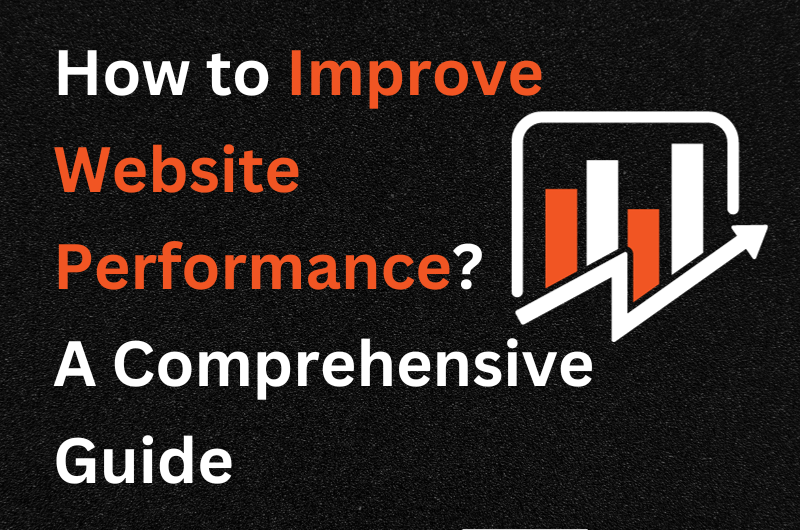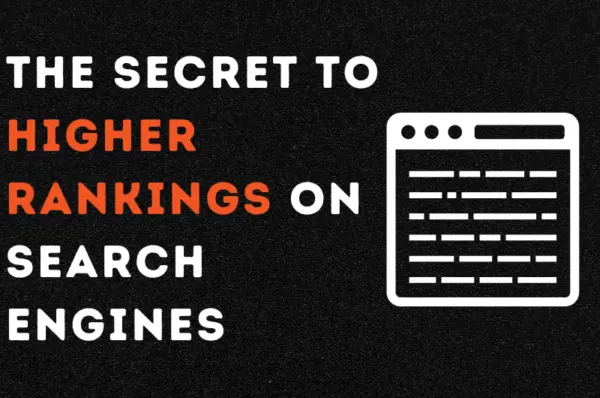Are you wondering how to improve website performance? Here is a comprehensive guide to help you out.
Your website’s performance matters a lot, and if it is not optimised, it can lower your SEO ranking. In the modern day, your website is your main source of lead generation and conversions. Therefore, you must make sure that it is functional and allows easy navigation for users.
In this blog, we will help you out by providing you with a comprehensive guide on how to improve website performance. Firstly, we will see in detail why it is necessary that you have a high-performing website. In addition, you will be provided with a step-by-step procedure to improve your website’s performance.
Do you need SEO services in London? Contact Us!
Why Your Website’s Performance Matters?
As mentioned earlier, your audience is not looking for your physical establishment to contact you. They are searching for you in search engines, which makes it highly important that you have an optimised website. In addition, search engines also rank you based on the speed of your website.
Imagine you are searching for a product on a website that is very hard to navigate. Would you be willing to put in the effort to understand its dynamics or shift to a new website that provides the same product? Most likely the latter, right?
This is exactly why your website’s performance is important. It can affect your bounce rate, conversion rate, and, therefore, your business. To compete in your industry, you will need a website that is easy to navigate and works smoothly. Let’s get optimising!
How to Improve Website Performance? A Beginner’s Guide
In this section, you will be provided with a step-by-step procedure on how to improve website performance. This guide has been designed for beginners, but it will help you create a website that attracts your audience while reducing bounce rates. Let’s begin!
1. Run a Website Performance Audit
The first and most critical step is to run a website performance audit. A performance audit will pinpoint the strengths and weaknesses of your website. It will provide you with a basic evaluation that you can use to improve the areas that are slowing down your website.
Click here to get a free site audit now!
2. Optimise Images and Multimedia
Now that you have an evaluation of your website, start with the larger files, such as images and multimedia. These files can be optimised by resizing and compressing. If your media is optimised, it can slow down your website’s speed, resulting in a lower SEO ranking.
3. Minimise HTTP Requests
HTTP requests are a bit complicated, and you will need the right technical understanding. Each time that a web page makes an HTTP request, it can reduce your website’s speed. Therefore, you need to reduce the HTTP requests being made.
4. Leverage Browser Caching
When someone visits your website, the browser stores certain files on their device. By doing this, it does not have to download the files each time, the user clicks on your website. You can use this to set up caching rules on your server. This means that the people who have already visited your website will experience a faster loading time due to the cached data.
5. Optimise Server and Hosting
Your server configuration and a reputable hosting can significantly impact your website’s performance. To optimise your server and hosting, you will need to choose the right set of hosting resources that align with your website’s requirements. In addition, you also need to implement server-side cashing mechanisms.
6. Monitor and Test Regularly
Lastly, you need to understand that optimising your website is not a one time procedure. You will constantly need to track its performance. This will allow you to address problems early on without having a negative impact on your business. For this, you will need to conduct routine tests like load testing and security scans.
Visit SEO Syrup, the best SEO service provider in the UK.
A Brief Summary
Here’s a brief summary of what we have discussed so far on how to improve website performance. Your website’s performance matters a lot, as search engines rank you based on its speed. In addition, users have a long list of options, if your website is not loading, they will click on the next website. That is a lost opportunity for you.
To improve your website’s performance, you will first need to evaluate its functionality with a website performance audit. Once you have discovered the weakness, start by optimising larger files, such as images. Then you need to reduce HTTP requests and use browser caching to enhance your website’s performance. In addition, you should optimise your server and hosting so that they align with your website. Lastly, it is highly important that you monitor and test your website regularly to identify problems early on.
We at SEO Syrup understand the complexities behind website optimisation and provide you with a team of SEO experts to help you rank higher on search engines. Contact us for more information or to get an instant quote.



